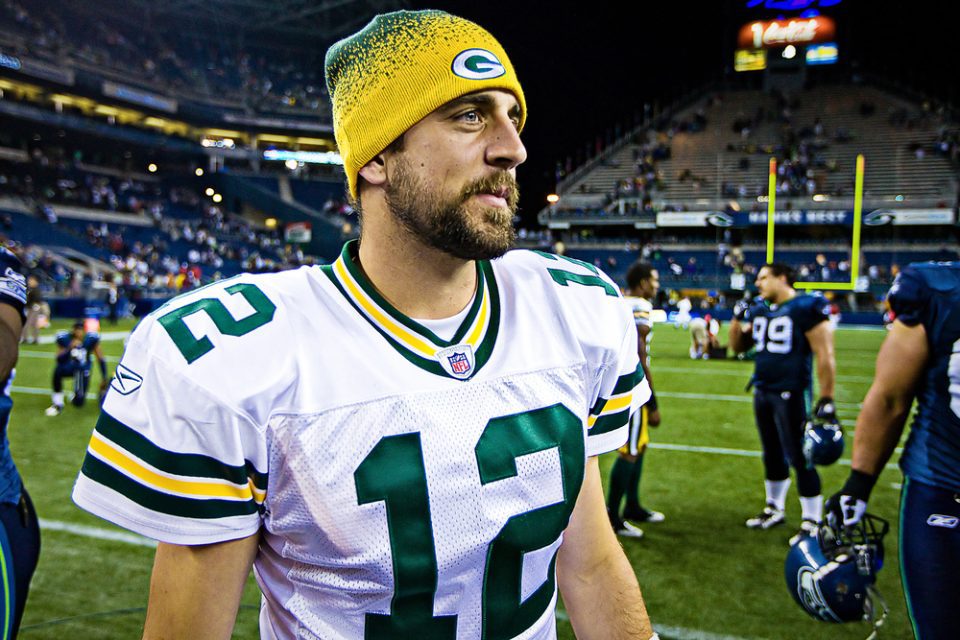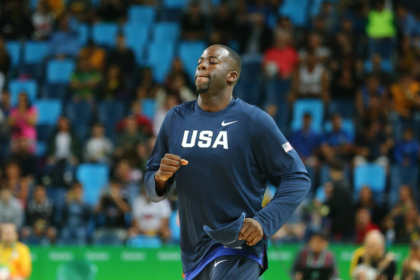Tension between quarterback and owner signals deeper organizational issues

The New York Jets’ 2024 season has evolved into a story that goes beyond their struggles on the field. As the team faces its fourth consecutive losing season, internal discord between key figures has begun to overshadow the franchise’s performance. The relationship between star quarterback Aaron Rodgers and team owner Woody Johnson has become a focal point of attention, revealing deeper issues within the organization and raising important questions about the team’s future direction.
The seeds of discord
At the start of the season, there was hope that Aaron Rodgers’ arrival would signal a new era for the Jets, a franchise that has been mired in mediocrity for over a decade. Rodgers, with his championship pedigree and Hall of Fame resume, was expected to bring a sense of stability and leadership to a team desperate for success. Initially, his relationship with owner Woody Johnson seemed promising, with both sides talking about the potential for a fruitful partnership. However, as the season progressed, tensions began to simmer beneath the surface.
Rodgers, a seasoned veteran with a reputation for being outspoken, appeared to develop a closer relationship with vice chairman Christopher Johnson, the brother of Woody. In contrast, his interactions with Woody Johnson became notably distant. The lack of rapport between the two became more evident as the team’s struggles mounted, revealing an organizational rift that wasn’t just limited to the front office but began to seep into the locker room.
Strategic disagreements
Things came to a head after the Jets’ crushing loss to the Minnesota Vikings in London, which dropped their record to a dismal 4-6. Following the defeat, the team made a series of changes to the coaching staff, including a controversial shake-up with offensive coordinator Nathaniel Hackett. Hackett, once a trusted confidant of Rodgers, became a target for criticism, leading to significant discord within the organization.
Rodgers, known for his strong opinions on football strategy and personnel, was reportedly upset by the coaching changes, feeling that the move was a sign of instability within the Jets’ leadership. The timing of the changes only fueled the fire, as the Jets were already in the midst of a losing streak that seemed to sap morale across the entire team. What began as a performance issue quickly became a leadership crisis, with Rodgers and Johnson’s differing visions for the team becoming more pronounced.
Management style clash
The tensions between Rodgers and Johnson can be attributed to more than just a few disagreements about coaching decisions. At the heart of the issue lies a fundamental clash of leadership styles. Rodgers, known for his cerebral approach to the game and his autonomy on the field, values a level of independence that is often at odds with Johnson’s more traditional, hands-on approach to management. The Jets owner, a businessman with a focus on the financial and operational aspects of the franchise, has had a history of meddling in football matters, a characteristic that has often led to friction with players and coaches alike.
Rodgers, who is accustomed to a more collaborative and flexible environment, found himself frustrated by Johnson’s involvement in decisions related to personnel and overall team direction. The contrast between their leadership styles became particularly evident as the season progressed, with Rodgers’ dissatisfaction mounting. The rift between the two only deepened as the Jets’ performance continued to deteriorate, with the team’s playoff hopes growing slimmer by the week.
Impact on team performance
The internal struggles between Rodgers and Johnson are undeniably impacting the Jets’ on-field performance. Despite Rodgers’ status as one of the greatest quarterbacks of all time, the team has failed to generate any consistent success. With a 4-10 record, the Jets find themselves mired in yet another season of disappointment. The struggles on the field are a direct reflection of the turmoil brewing behind the scenes.
The Jets’ 14-year playoff drought, one of the longest in the NFL, continues, and the team is no closer to breaking it. The lack of cohesion within the organization, from the front office to the locker room, has had a direct effect on the team’s ability to compete at a high level. The frustration is palpable among players and coaches, many of whom have voiced their discontent with the lack of stability and clear direction. As tensions continue to mount between Rodgers and Johnson, the possibility of a successful season appears increasingly remote.
Future uncertainty
With the Jets’ playoff hopes all but extinguished, the future of both Aaron Rodgers and the franchise itself is in question. Rodgers, who signed a four-year contract with the Jets, has remained publicly noncommittal about his future with the team. While he has stated that he intends to honor his contract, his comments about the organizational leadership have suggested a growing divide between him and the ownership. Given the personal tensions with Woody Johnson and the lack of clear direction, it’s unclear whether Rodgers will be willing to continue his career in New York for much longer.
Rodgers has always been vocal about his desire to play for an organization that aligns with his values and philosophy on football. If the tensions with Johnson continue, it could prompt Rodgers to reconsider his future with the Jets, potentially seeking a trade or even considering retirement. For the Jets, the decision regarding Rodgers’ future is tied to the broader question of how they plan to navigate the ongoing leadership challenges and build a competitive team.
Organizational crossroads
The New York Jets find themselves at a crucial crossroads. With a franchise quarterback and star player like Rodgers, they have the potential to become a contender. However, the internal discord between Rodgers and Woody Johnson threatens to derail that potential. The Jets need to address not only the issues on the field but also the fractured dynamics within the organization. The way the front office and leadership handle the situation with Rodgers and the relationship between the owner and players will be a key determinant in the franchise’s future.
Resolving the tensions between Rodgers and Johnson may very well shape the Jets’ future trajectory, whether it leads to a resurgence or further decline. At this critical juncture, the team must decide whether it will continue down a path of internal discord or find a way to unite under a shared vision. Until then, the future of the Jets remains uncertain, both on the field and in the boardroom.












